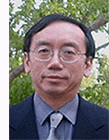China’s gray income increases
Underestimated incomes for the wealthy demonstrate larger than expected wealth disparity
 BEIJING, Mar. 3 – Professor Wang Xiaolu of the National Research Institute of the China Reform Foundation has recently published a study that estimates that the average per capita disposable income of urban households for 2005 was undervalued by nearly 400 percent for the top 10 percent of Chinese households. The average, his report entitled “Gray Income and Income Inequality in China” states, should have been around RMB97,127 instead of the government reported RMB19,730.
BEIJING, Mar. 3 – Professor Wang Xiaolu of the National Research Institute of the China Reform Foundation has recently published a study that estimates that the average per capita disposable income of urban households for 2005 was undervalued by nearly 400 percent for the top 10 percent of Chinese households. The average, his report entitled “Gray Income and Income Inequality in China” states, should have been around RMB97,127 instead of the government reported RMB19,730.
Wang cross-checked his research data with other available Peoples Bank of China data on car ownership, property, overseas vacations taken and bank deposits and found his estimates to be much closer to actual reality than government figures suggest. This means that the top 10 percent of earners are successfully hiding about two-thirds of their income from the National Bureau of Statistics, meaning official estimates of income inequality, gross domestic product and tax evasion are all woefully understated.
These results, if correct, have profound implications for China’s macroeconomic and equity market outlook, indicating that the level of income and wealth is far higher than official data suggests, with the government faced with serious problems of national wealth redistribution, and that the affordability of China’s consumer market is much larger than previously thought.
Wang believes the glaring contradiction between China’s lean, free-market capitalism and its inflating, closed and corruptible government is about to become the country’s central economic challenge. China is getting richer largely because the government has got out of the way and allowed resources to be allocated more efficiently. But now the early agricultural reforms are complete, there is not much left to be privatized and urbanization is becoming proportionately less important. Wang argues that the government needs to remove itself from part of the economy if China is to sustain its phenomenal growth rate.
While many in China see only the missed opportunities chances for political reform since 1989, some of its leading economists believe the state still has a choice, although the window for this is closing. It can make its workings transparent and accountable to the people it is meant to serve, or it can lead the country back to the low productivity and GDP growth rates that China has not seen since the late 1970s, with many such as Wang, believing the country has reached a crossroads in sustainable development.
- Previous Article New China Briefing issue out: Investing in China – Practical advice for the international SME
- Next Article Can your China manager manage?









